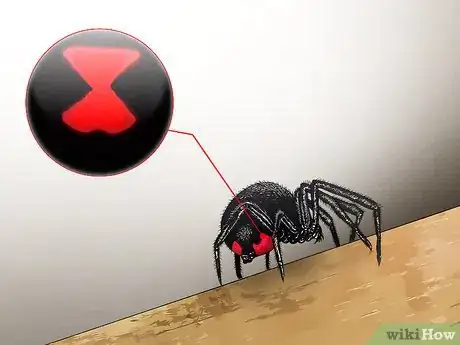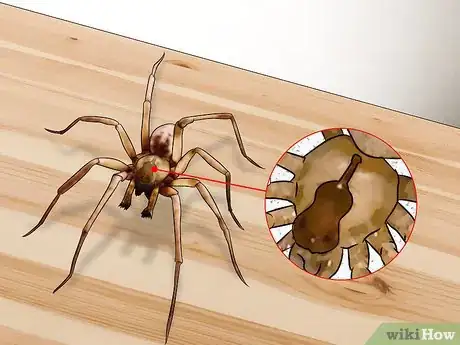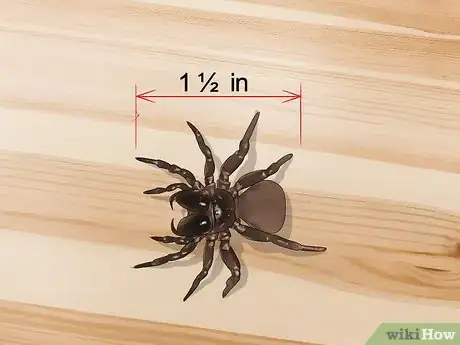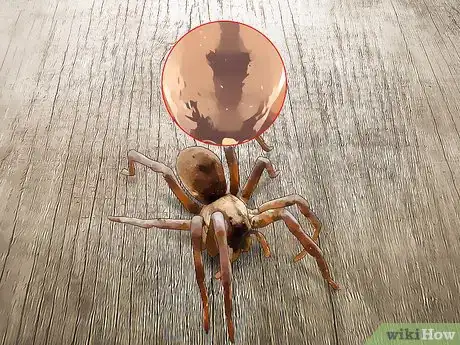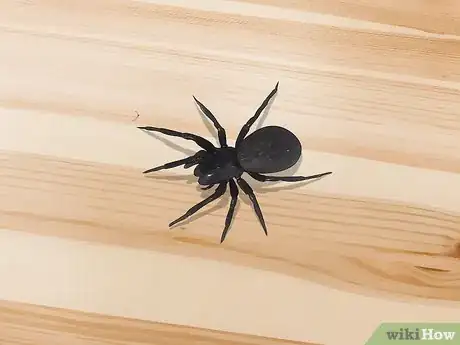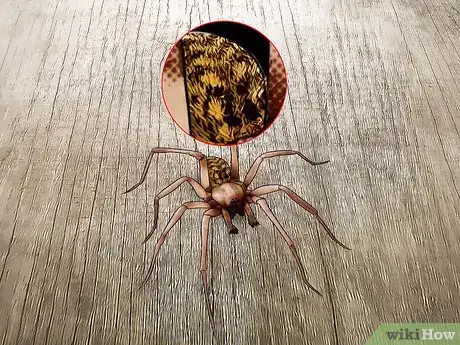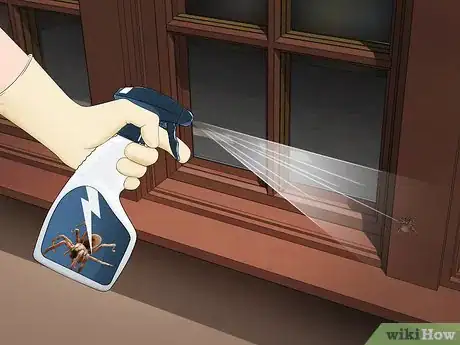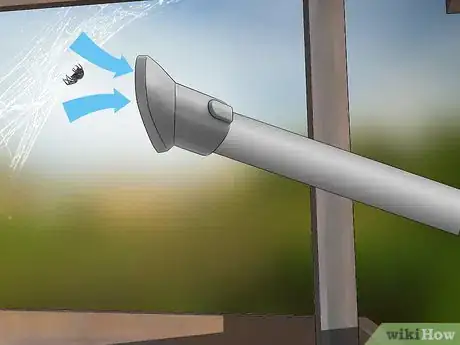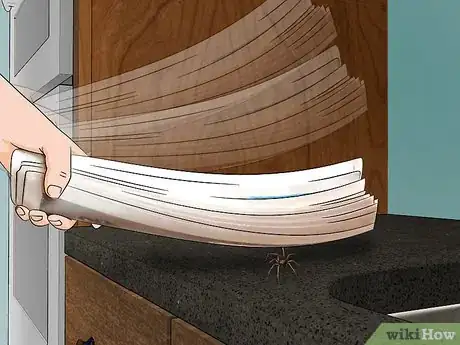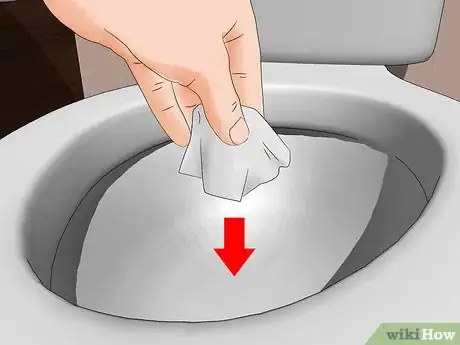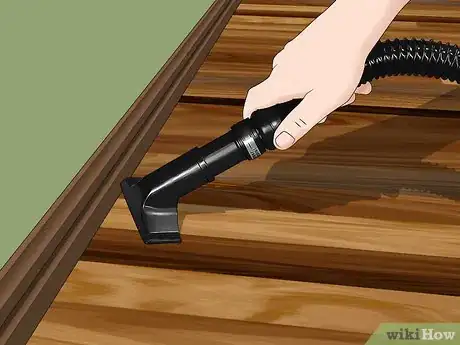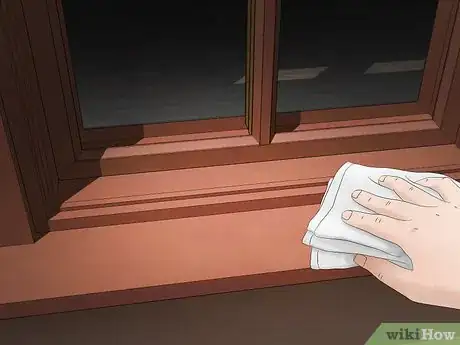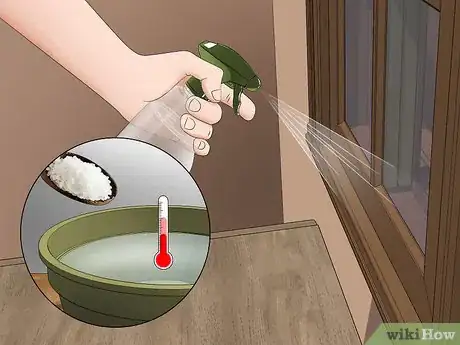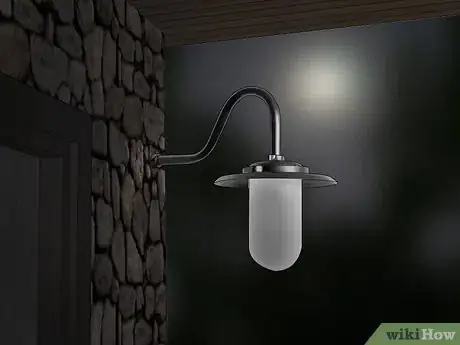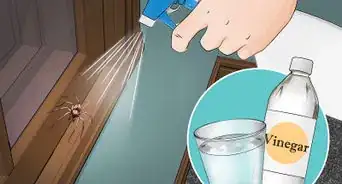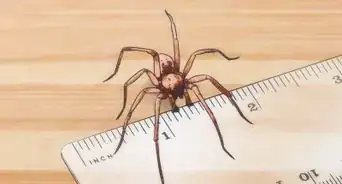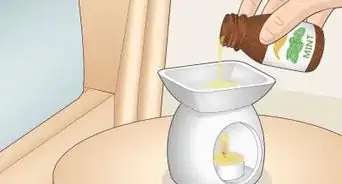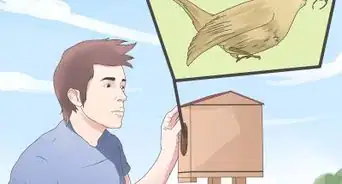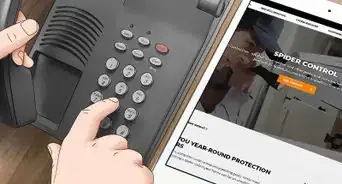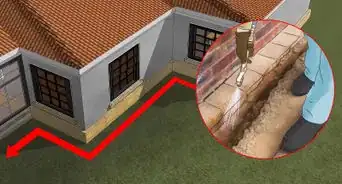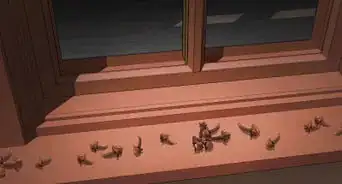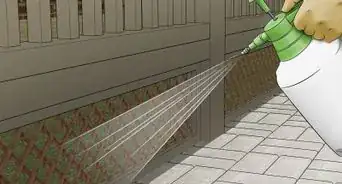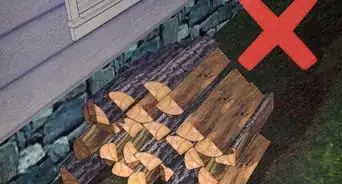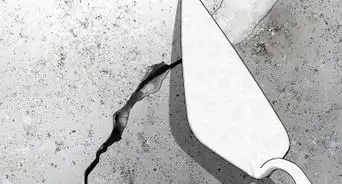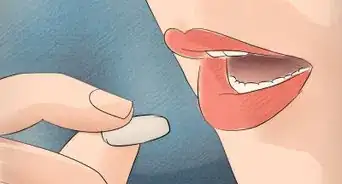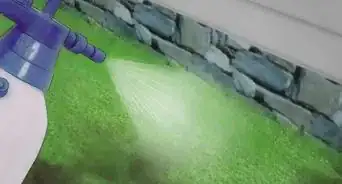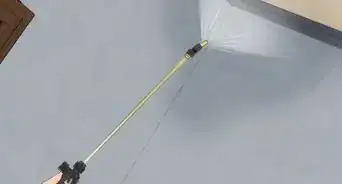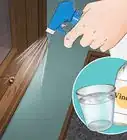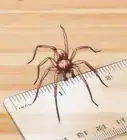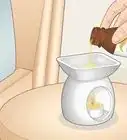This article was co-authored by Hussam Bin Break. Hussam Bin Break is a Certified Commercial Pesticide Applicator and Operations Manager. He and his brother Hussam co-founded Diagno Pest Control in the greater Philadelphia area in 2018, and have since expanded their services to include the New Jersey market. Diagno Pest Control has received Home Advisor's Top Rated and Elite Service Badges for quality of work and customer service.
This article has been viewed 329,014 times.
It can be really scary when you suddenly see a spider in or around your home. Some spiders are highly dangerous while others won’t cause you any harm at all. You can get rid of venomous spiders by first identifying them, killing them, and keeping them away.
Steps
Identifying Dangerous Spiders
-
1Spot Black Widows by their red hourglass mark. If you see a black spider in or near your home that has a bright red hourglass marking on its abdomen, you’ve spotted a Black Widow spider. These are extremely dangerous and are potentially fatally venomous. Be extra careful around the outside of your home if you live in a temperate climate and have woodpiles; Black Widows are most frequently found there.[1]
-
2Look out for Brown Recluses’ violin-like mark. If you see a long-legged brown spider that has a violin shape on its head, then you’ve most likely come across a Brown Recluse spider. These are very dangerous spiders who have an extremely venomous bite. Brown Recluses like to lurk in dimly lit areas such as clothing, so be wary when you’re putting on old socks or shoes.[2]Advertisement
-
3Identify Mouse spiders by their large size. Mouse spiders can get up to 1-1 ½ inches in length. You might be dealing with a female if you notice big fangs and a big, stocky build and you might be dealing with a male if you notice a slimmer version with a bright red head. They are venomous and have an especially painful bite.[3]
-
4Look for a union jack impression on a Wolf spider’s back. Wolf spiders have what looks similar to a map of the United Kingdom on their back, except brown or grey in color. Although they aren’t as aggressive as other dangerous spiders, their bites are still venomous. Don’t squish this type of spider because the females carry their young on their backs. Keep an eye out for Wolf spiders in your garden.[4]
-
5Identify Black House spiders by their velvet-like texture. Black House spiders are usually either a dark brown or black color, appear velvety, and like dry, secluded areas. Be cautious around windowsills and in sheds, because they’re often found there. Their venomous bites can make you nauseous and give you a headache.[5]
-
6Spot Hobo spiders by their chevron pattern. If you see a chevron-patterned spider in your basement, it might be a Hobo spider. The females are a little rounder and the males have two palpi that look like boxing gloves. These spiders have initially painless bites, but make sure to take action quickly if you think you’ve been bitten by one. A day after the bite, your skin may blister and you may get a bad headache.[6]
Killing Spiders
-
1Spray the spider or dust the area with an insecticide. Buy an insecticide dust or spray that’s specifically for killing spiders. You can spray an aerosol insecticide directly on a spider to successfully kill it. If the spider you’re trying to kill is especially agile, you may want to apply an insecticide dust to the entire room.
-
2Vacuum the spider up. Get out your vacuum cleaner and suck the spider up with it. This is a better method to go with if your vacuum has a bag that you can easily remove and throw away. Don’t reach your hand in the debris if you use a bagless vacuum in case the spider is still alive.
-
3Squish the spider with a heavy object. Use your shoe or a rolled-up magazine or newspaper to squish the spider.[7] To ensure that the impact kills the spider, have confidence and use force.
-
4Dispose of the spider immediately. Once you’ve killed the spider, double check to make sure that it’s dead, and then use a paper towel to carefully pick it up and throw it in your trash can or drop it into your toilet and flush it.
- Pets and young children often attempt to eat anything and everything. Even if the venomous spider is dead, it still may have poisonous venom that could be extremely harmful if ingested.
Keeping Spiders Away
-
1Keep your home clean. Vacuum on a regular basis to suck up and kill any spiders or egg sacs in your home. Pay special attention to the cracks and corners in your home and remove any spiderwebs that you notice. Make sure to keep your storage in the basement, garage or attic well organized and clutter-free.[8]
-
2Take care of your home’s exterior. Regularly wipe down your shutters, caulk all cracks, and put weather strips on your doors. Make sure to de-clutter piles of rocks, wood, or compost around your home so that your yard is a less appealing environment to spiders.[9]
-
3Make spider repellents. Dissolve regular table salt in warm water, put the solution in a spray bottle, and spray the plants surrounding the outside of your home to keep spiders away. You can also mix water with lavender, cinnamon, citrus, tea tree, or peppermint oil and spray it in problem areas to repel and even kill spiders from a distance.
-
4Keep your outdoor lights off. Bugs will be less drawn to your home if you keep the exterior lights off. Because of this, you can cut spiders’ food supply with just the flick of a switch. Replace your lights with sodium vapor lights or yellow lights as an alternative. These types of lights are much less attractive to bugs.[10]
Expert Q&A
-
QuestionWhat is the best pesticide for spiders?
 Hussam Bin BreakHussam Bin Break is a Certified Commercial Pesticide Applicator and Operations Manager. He and his brother Hussam co-founded Diagno Pest Control in the greater Philadelphia area in 2018, and have since expanded their services to include the New Jersey market. Diagno Pest Control has received Home Advisor's Top Rated and Elite Service Badges for quality of work and customer service.
Hussam Bin BreakHussam Bin Break is a Certified Commercial Pesticide Applicator and Operations Manager. He and his brother Hussam co-founded Diagno Pest Control in the greater Philadelphia area in 2018, and have since expanded their services to include the New Jersey market. Diagno Pest Control has received Home Advisor's Top Rated and Elite Service Badges for quality of work and customer service.
Pest Control Professional I recommend using a residual pesticide to ensure spiders don't return to an area, since sprays are limited to killing spiders on contact.
I recommend using a residual pesticide to ensure spiders don't return to an area, since sprays are limited to killing spiders on contact.
Warnings
- An untreated spider bite can have serious negative impacts on your body. If you’re bitten by a venomous spider, seek medical attention immediately.⧼thumbs_response⧽
References
- ↑ http://www.outdoorlife.com/photos/gallery/survival/2011/10/10-most-dangerous-spiders-world#page-8
- ↑ http://www.outdoorlife.com/photos/gallery/survival/2011/10/10-most-dangerous-spiders-world#page-8
- ↑ http://www.termite.com/spider-identification.html
- ↑ http://www.termite.com/spider-identification.html
- ↑ http://www.termite.com/spider-identification.html
- ↑ http://www.termite.com/spider-identification.html
- ↑ https://www.terminix.com/pest-control/spiders/removal/
- ↑ https://www.terminix.com/pest-control/spiders/removal/
- ↑ https://www.terminix.com/pest-control/spiders/removal/
